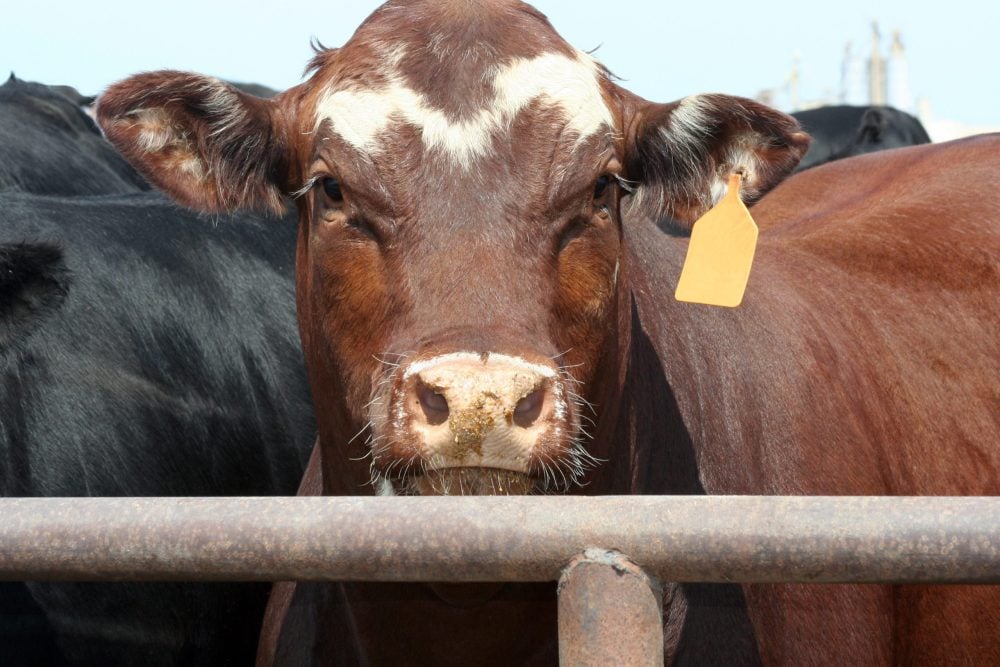(Resource News International) — Keystone Processors’ ribbon-cutting — or in this case, beef tenderloin-cutting ceremony — just took place Tuesday, but the new Winnipeg beef processing company is already thinking ahead to its next step: the export market.
Keystone is currently only licenced to sell product within Manitoba but the mainly producer-owned company hopes to construct a $25 million federally-inspected slaughter facility at its current site on Marion Street in St. Boniface by 2011.
The company is presently processing sides of beef from two Manitoba slaughterhouses for local retailers such as De Luca’s Specialty Foods, Winnipeg Old Country Sausage Ltd. and Selkirk Butcher Shop. They received Keystone’s first shipments in late February.
Read Also

U.S. livestock: Cattle futures plunge daily limits on beef price fears
Reuters — Most Chicago Mercantile Exchange live cattle and feeder cattle futures contracts fell their respective daily limits on Friday,…
“Federally inspected is where we have to be. We can’t be successful just being a small provincial plant. For the most part, local or provincial companies are taking care of the local demand already so it doesn’t make sense to be competing against them,” said Keystone president Kelly Penner.
Keystone plans to eventually focus on processing and exporting mainly kosher, halal and hormone-free meat to niche markets in North America, the Middle East and elsewhere.
But the problem is not identifying potential new markets, Penner said. The challenge is opening a slaughter plant which meets federal inspection requirements and getting export ready.
The Manitoba Cattle Enhancement Council (MCEC), a provincial organization funded by a $2 per head checkoff on cattle sold in the province, has committed just over $3 million toward the construction of the new plant. That follows a $2.4 million investment in the current facility.
Penner hopes to add to that a portion of the $50 million promised in January’s federal budget for Canadian slaughterhouses.
“We’re really lobbying the federal government and we’re asking the provincial government to lobby the federal government to make sure that Manitoba sees some of that budget money,” said Penner.
Comments from within the Canadian livestock and meat industry that the federal funds should not be used to expand Canada’s already under-utilized slaughter industry are unfair, he said, suggesting they miss the point of Keystone’s business model.
“We’re not looking to do 5,000 head a day. We’re not looking to compete with Cargill. We’re looking at a plant that creates opportunities for Manitoba cattle producers who want to go for some niche markets and get involved in that,” Penner said.
The province’s beleaguered cattle producers aren’t “jumping up and down” about getting on board for the next phase of the business plan; most are keeping their money in the MCEC, which is a “really positive thing,” Penner said.
While Keystone waits over the next couple of months to hear how the federal government will distribute its sought-after funds, the company will focus on training and hiring staff as well as ramping up production from 20 to 30 head per week currently to 150 to 200 head per week by the end of the year.















